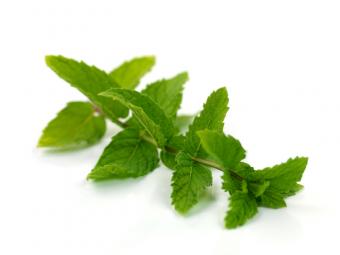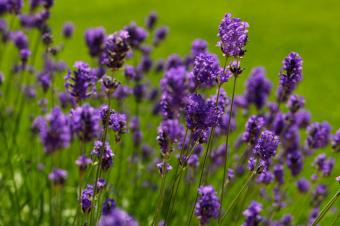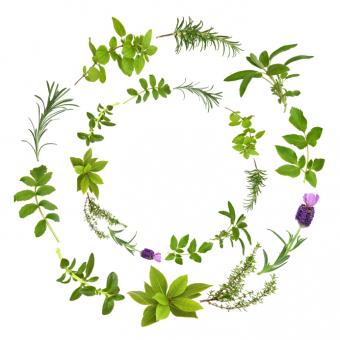Basic Herbs that Promote Health

Basic health-promoting herbs include culinary herbs, tonic herbs and those used externally as antibacterial, antimicrobial agents. You can find many of these herbs on the kitchen spice rack, and others are found at health food stores. These herbs have multiple uses and offer systemic health benefits. Consult your health care provider before use, and tell him or her about any herbal treatments you use. Pregnant or nursing women should avoid using herbs.
Mint

The entire mint family provides many health benefits. Peppermint in particular relieves nausea, indigestion and flatulence. It's a tasty herb that can be brewed into a tisane or tea or added to foods. The enteric-coated peppermint capsules sold at health food stores are useful for upset stomach and digestive issues.
Nettles

Nettle leaves brewed into teas or tisanes are known as tonic herbs. Many people drink nettle tea periodically as a cleansing agent and to tonify the entire body. Nettles are also a good source of iron, minerals and other nutrients. The taste is rather pungent, but adding some honey offsets the bitterness. Nettles also provides astringent and diuretic properties.
Milk Thistle

Milk thistle offers potent liver protective properties and is used to treat liver-related ailments such as cirrhosis. Chemicals within milk thistle seeds encourage liver cells to regenerate and promote cleansing and healing. Purchase it as a tincture and add to water according to the package directions; the taste is sweet and not unpleasant. Avoid taking it if you have liver problems until you consult your doctor.
Sage

Among the herbs in the spice rack in your kitchen, sage offers many health benefits as well as adding subtle flavor to numerous culinary dishes. Sage leaves brewed into a tisane and used as a gargle help with sore throats, laryngitis and other mouth and throat problems. Sage offers antiseptic qualities and is reputed to give fast relief from the common cold.
Echinacea

Echinacea's (purple coneflower) medicinal benefits are numerous. It's famous for its antiseptic, antibacterial, antimicrobial, antiviral and antifungal properties, and it strengthens the immune system and fights infections. Often paired with goldenseal for added benefits, it can be consumed in teas or tinctures. You can dry the roots and make them into capsules or tinctures. Buy a good quality product marked "standardized extract" from a reputable company to ensure potency.
Sign up for our newsletter featuring all the latest stories and products we love.
Lavender

The primary use of lavender is as a topical agent and aromatherapy herb, but you can also use it for cooking to add flavor and aroma to baked goods and teas. Lavender's scent promotes restful sleep, enhances relaxation and reduces stress. Used topically, it has antibacterial, antimicrobial and pain relief properties. Treat respiratory problems by inhaling it or applying it topically.
Herbs for Health

Choosing the right herbs relies on knowing the benefits of each and the proper techniques for safe usage. The best method is the dietary use of culinary herbs. Sage, basil and cinnamon are useful herbs that promote health. Unless one is allergic to them, they are quite safe. Herbal teas and tisanes are an easy entree into the world of herbs for health.







